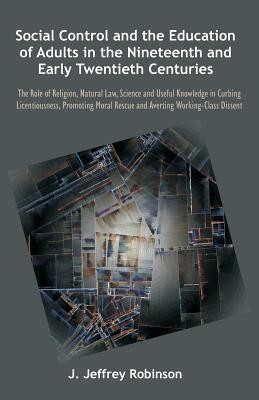
- We will send in 10–14 business days.
- Author: J Jeffrey Robinson
- Publisher: Brown Walker Press (FL)
- ISBN-10: 1612337058
- ISBN-13: 9781612337050
- Format: 14 x 21.6 x 1.8 cm, minkšti viršeliai
- Language: English
- SAVE -10% with code: EXTRA
Social Control and the Education of Adults in the Nineteenth and Early Twentieth Centuries (e-book) (used book) | bookbook.eu
Reviews
Description
An almost universal concern of the Victorian governing classes was with the question of social control: how to deflect a largely uneducated working class from their inevitable challenge to the centres of power, accepted value systems and existing authority structures. The fear in which the masses were held by the middle and upper classes came to dominate access to education or, more accurately, to what they defined as "useful knowledge," since this was designed to instil the values of a just and ordered society. Conversely for the working class, it would give them power; power over their own lives and in so-doing provide access to that social hierarchy currently valued by the governing minority. This book addresses the role of the providers of education alongside the responses of those for whom it was intended. It discusses the provision of educational initiatives and the frequent attenuation of their founding objectives. It assesses the utility of the strategies of power and control adopted by the providers in order to maintain an upper class ideology. Though evidence is discussed in a national context, it is supported by additional data from a rural county both for the purpose of comparative analysis and in order to add character and hear the true voice of the men and women involved.
EXTRA 10 % discount with code: EXTRA
The promotion ends in 22d.02:53:33
The discount code is valid when purchasing from 10 €. Discounts do not stack.
- Author: J Jeffrey Robinson
- Publisher: Brown Walker Press (FL)
- ISBN-10: 1612337058
- ISBN-13: 9781612337050
- Format: 14 x 21.6 x 1.8 cm, minkšti viršeliai
- Language: English English
An almost universal concern of the Victorian governing classes was with the question of social control: how to deflect a largely uneducated working class from their inevitable challenge to the centres of power, accepted value systems and existing authority structures. The fear in which the masses were held by the middle and upper classes came to dominate access to education or, more accurately, to what they defined as "useful knowledge," since this was designed to instil the values of a just and ordered society. Conversely for the working class, it would give them power; power over their own lives and in so-doing provide access to that social hierarchy currently valued by the governing minority. This book addresses the role of the providers of education alongside the responses of those for whom it was intended. It discusses the provision of educational initiatives and the frequent attenuation of their founding objectives. It assesses the utility of the strategies of power and control adopted by the providers in order to maintain an upper class ideology. Though evidence is discussed in a national context, it is supported by additional data from a rural county both for the purpose of comparative analysis and in order to add character and hear the true voice of the men and women involved.


Reviews